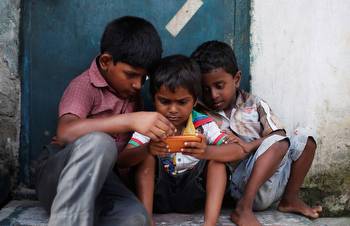Study Reveals the Top Smartphone Brands Used for Online Casino Games in India

A fresh online market study explores the types and brands of mobile devices that Indians use to play games. As both real-money and social gaming online become part of daily pastime, desi users are shown to stick to affordable brands they know and trust.
“Domestic” Brands Take the Lion’s Market Share
The research piece, published by affiliate marketing experts ENV Media, takes a closer look into India’s favourite mobile devices from the perspective of the online gaming industry. A breakdown of aggregated datasets – visits, sessions, clicks – over four months in early 2021 confirms the Union as “mobile-first”. In fact, only 12% of all gamers use desktop computers. Analysts expect the decline of PCs and gaming consoles to continue.
Domestically produced smartphones, unsurprisingly, are the top choice for accessing an online casino in India, when Indian gamblers play online casino on websites like 10Cric. Several Chinese-origin brands were found to dominate the market, with Xiaomi (23.38%) leading the pack. Samsung (19.24%) is not far behind, and is the only non-Chinese brand among the leaders. Vivo, OPPO and Realme close out the top five. OnePlus has stable market positions as well, rivalling Apple in the premium smartphone segment.
The first six Android phones combine for 89% of the market, while Apple is found to have a modest share, hovering around the 3% margin. The iPhone performs somewhat better in Delhi and Mumbai, yet Apple’s problems with app support and payment integration have limited its sales potential. The US giant finally launched its dedicated Indian online store in late 2020 and is yet to open up a physical flagship store towards the end of 2021.
A previous ENV Media survey analysed the influence of India’s biggest and richest cities on the online gambling scene. The latest report adds a State split – Maharashtra tops the rankings of player visits (with 16.74% of all online gamers), followed by Karnataka (9.17%), Telangana (8.38%), Uttar Pradesh and Tamil Nadu.
The visibility of Tier-1 cities like Mumbai, Pune, Bengaluru, Hyderabad or Chennai is only logical, given their overall development, high-tech infrastructure, and manufacturing capacities. Metro players are well-represented in all gaming genres and will continue shaping the market.
Android Faces Weak Competition
Android does not surprise as the absolute market leader in Operating System choices. Overall, it offers more apps, games, and payment options, and coming into 2021 it had more than 95% of the nation’s market. As soon as 2012 Android had only 10% of the market, posting perennially strong growth ever since.
Android phones are known to be more affordable and have consistently attractive offers for the Indian market. An open OS, it allows desi tech companies to develop native products for a globally accepted system. Google’s Play Store also remains the go-to solution for gaming needs (reporting 13 times more downloads than Apple’s App Store during 2020 lockdowns), including a smooth integration with Google Pay.
The “Make in India” Campaign Starts Paying off
The leading mobile phones used for online gambling in India are more often than not manufactured locally. Even if the brands are Chinese, the demand for affordable and user-friendly mobiles has led social media influencers and tech reviews to promote mostly Android phones made in India.
The Government initiative encourages companies to transfer manufacturing facilities in India and is based on fiscal and regulatory incentives, including a fast-track around heavy bureaucracy. The factories in Noida and other industrial areas around the nation accommodate the likes of Xiaomi, Oppo, Realme, Oneplus, and Vivo. Chinese companies also have factories in Tamil Nadu and Andhra Pradesh. The “Make in India” initiative is apparently working, since even Apple transferred certain capacities last year.
The current market leader, Xiaomi, entered the market in 2016, yet overcame Samsung only a year later. Recent sales statistics confirm that Vivo is next in line challenging the Korean’s market share.




































